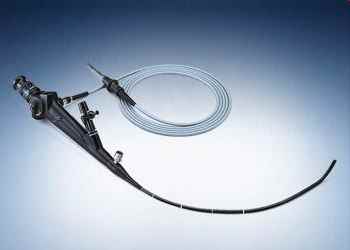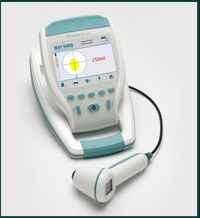Urology Clinic Visit
I made my first visit to the Urology Clinic at the Queen Margaret Hospital in Dunfermline the other day, the 14th March 2016. My appointment was with a Dr Leung but on arrival, I learned that he wasn’t available.
I have long had problems with my waterworks and this investigative visit was to ensure there was no underlying problem with my bladder. I had been referred to the urologist by my neurologist whom I had consulted recently. He agreed that my symptoms were most likely down to my multiple sclerosis but had to point out that there were other possibilities.
Smile you’re on cystoscopy!
I had lo look up the term cystoscopy as the procedure was not called by this name during my visit to the urology clinic but, a camera inserted via a catheter along the urethra into the bladder is the procedure I endured. I say endured, but it was not painful or especially unpleasant. The prospect of receiving the cystoscopy was much more alarming than the procedure itself.

Yes it is a little embarrassing having your prized jewels on display to the female nursing staff but, they’ve seen it all before and are, probably, thoroughly bored by the whole spectacle. I was the first of at least six gentlemen that afternoon to be so examined.
I was worried that the insertion of the catheter would trigger an unwanted flood as soon as the bladder sphincter was breached. But, my worry was misplaced; no such accident happened.
What I hadn’t expected was the subsequent test. Whilst the camera was in the bladder and the catheter was bridging the bladder sphincter, the urologist pumped water into the bladder until I could feel the urgent need to urinate.
Post-Void Residual Measurement

This was done, but not explained in detail, so that I would need to empty my bladder immediately after the cystoscopy. At this point, I was directed to pee into a receptacle with a large funnel, through which the flow of my urination could be measured. Finally a nurse, using an ultrasound scanner, measured my residual bladder content. A process I discovered, after some research, is known as post-void residual (PVR).
This measurement revealed that my bladder had retained some 250ml of urine, which was of some concern to the orologist. I knew my bladder didn’t empty fully as I had had a similar test some years ago, although at that point it wasn’t measured. Furthermore my flow rate was low, suggesting poor muscle function around the bladder.
My urologist referred to this PVR process as a flow scan test. A test, it seems, that I failed dismally.
This urine retention factor is a worry as it can, and often does, lead to bladder infections, also known as UTIs or urinary tract infections.
The urologist recommended a pharmaceutical medicine which ought to improve the muscle control although the one side-effect he mentioned was that it may lead to a lowering of my blood pressure which may cause light-headedness or possible fainting. Time will tell. I have submitted the urologist recommendation to my GP and should receive a prescription in due course.
A Stressful Experience
Nothing about the cystoscopy felt in the least stressful. But, I know that stress seriously impacts on my MS, usually, with fairly rapid consequences. I didn’t think that my visit to the urology clinic caused me any kind of anxiety but, I was wrong.
As we descended in the lift, to leave the hospital, my wife asked me if I would like to stop at the WRVS cafe for a coffee. I considered this for a moment and thought “No, I just want to get home.”
We stopped at my GP’s surgery to hand in the urologist’s recommendation letter and then returned home. I felt shattered. My fatigue had set in with a vengeance. I felt drained, almost nauseous.
I might have gone back to my office to do a little more work, some more blogging, but I couldn’t face that. Something had stressed me and I was paying the price. What had caused this? I couldn’t work it out. I had been on my feet far more than I would be normally, maybe it was just fatigue. But, it didn’t feel like that.
I don’t have a phobia about hospitals, I don’t get phased about needles, doctors or even cystoscopes. I like to think I am very laid-back, level-headed and even practical and logical.
I had not been worried about attending the urology clinic, at least I was not consciously worried about attending the urology clinic although there was clearly something unconscious at play here. The subconscious mind can be a very powerful force and almost impossible to analyse.
I should get my new medication soon, and will report back when I have had time to assess its efficacy.
External Links
The cystoscopy procedure is further explained in the following links:
NHS Choices
Healthline
Using the BladderScan for bladder volume assessment – Seekwellness
Additional Reading
[amazon template=template&title=-&artist=-&asin=032332830X] Campbell-Walsh Urology 11th Edition – W. Scott McDougal MD MA and Alan J. Wein MD PhD FACS
[amazon template=template&title=-&artist=-&asin=1331099951] Practical Cystoscopy: And the Diagnosis of Surgical Diseases of the Kidneys and Urinary Bladder – Paul M. Pilcher
